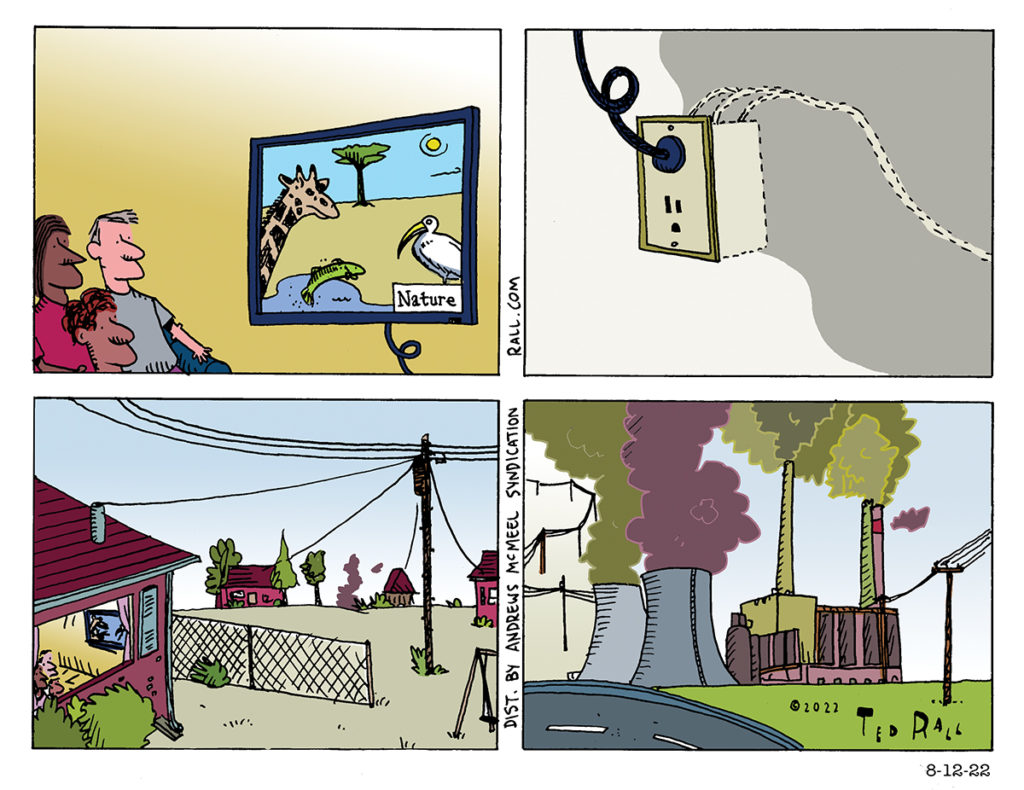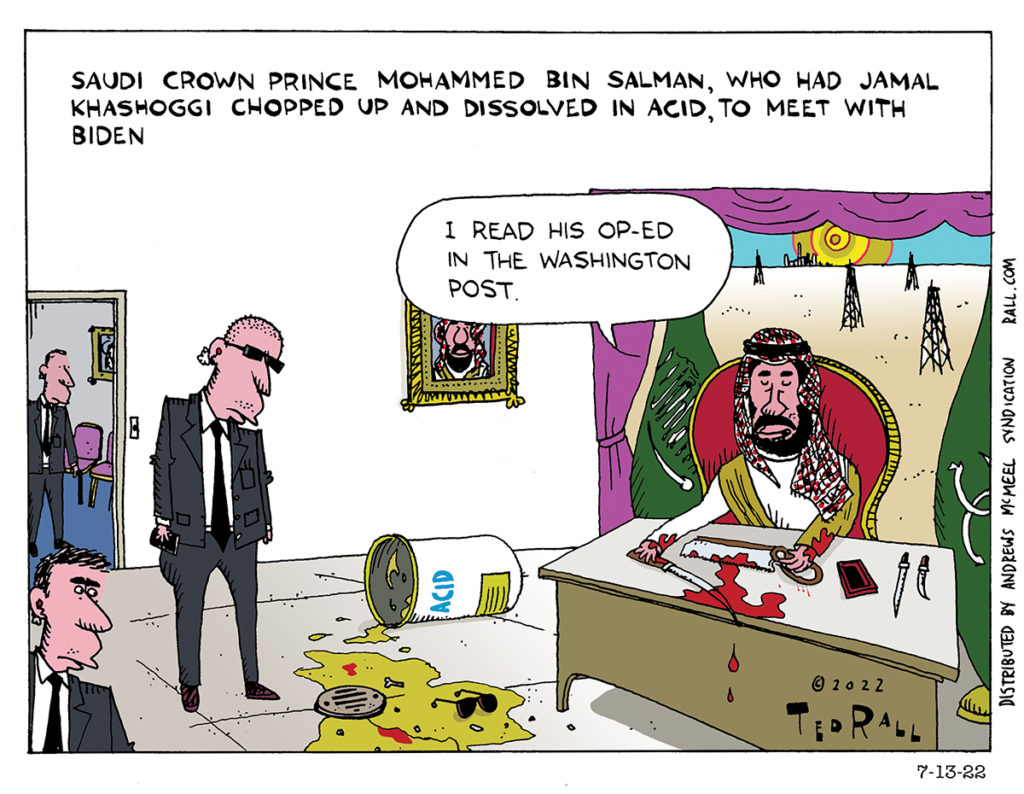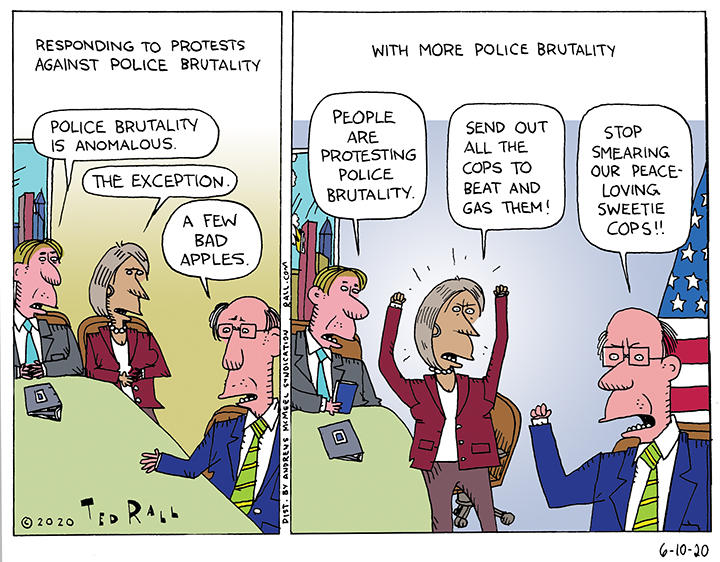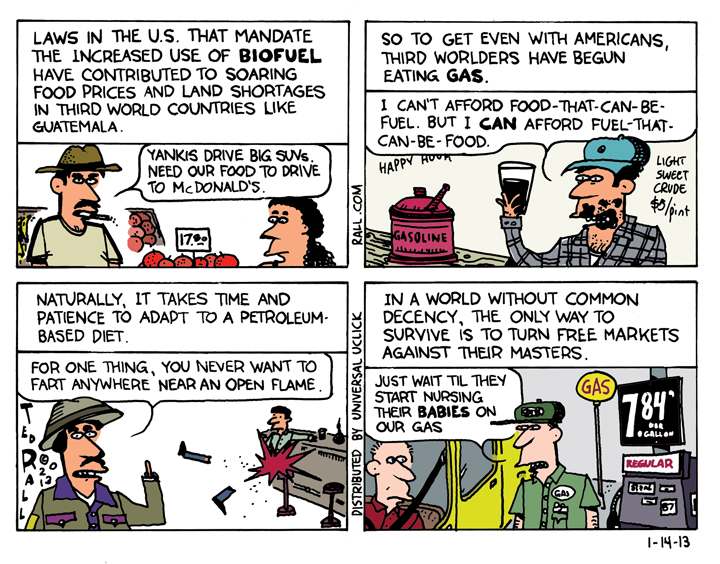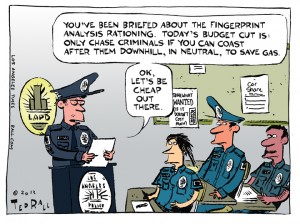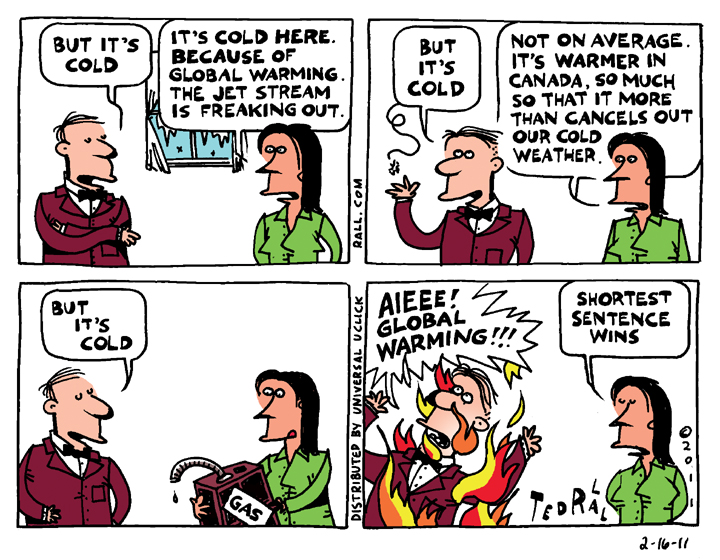President Biden’s reelection campaign is being hampered by stubbornly high prices and frozen wages, the ultimate economic phenomenon that makes consumers feel that the economy isn’t doing well.
Next Time Write a Letter to the Editor
Saudi Arabian Crown Prince Mohammed bin Salman, who had Washington Post journalist Jamal Khashoggi murdered, chopped up and dissolved in acid, is scheduled to meet with President Joe Biden. Biden is visiting the Middle East in order to ask Saudi Arabia to ramp up oil production to make up for the shortage of Russian oil created by his sanctions. If I were the president, I would be nervous—especially since he just published an op-ed justifying the trip in the Washington Post.
Here’s The Real Reason Why Some Americans Hate Iran Nuclear Deal
Originally published by ANewDomain.net:
The nuclear deal with Iran is a good thing. President Obama deserves credit for initiating the dialogue and for negotiations that led to terms to which both sides can agree. As Winston Churchill said but too few Americans believe:
“To jaw-jaw is always better than to war-war.”
So why are there still so many high-profile opponents to this agreement, which provides for an inspections regime to enforce Iran’s promise not to develop a nuclear weapons program in exchange for lifting international economic sanctions against the Islamic Republic?
According to the vast majority of writers and broadcasters working for corporate media, the opposition is ideological.
Saudi Arabia, they say, is afraid that Shiite Iran will violate the agreement in order to become the second nuclear state in the Middle East, after Israel, and might threaten to use it against them or one of their Sunni allies. Both Saudi Arabia and Israel, by this way of thinking, are also worried that Iran might increase its support of terrorist organizations as its economy improves.
Since President Obama has promised to veto any attempt by the Republican-led Congress to derail the agreement, and it would be difficult for the GOP to muster the two thirds majority necessary to override the president’s veto, resistance is pretty much pro forma.
According to the Republicans, they’re not afraid of peace or jonesing for war against Iran – they just don’t think there’s any way to prevent the Iranians from cheating the inspectors, and in an echo of the classic complaint that a restaurant has terrible food and such small portions, the inspections don’t go far enough into the future.
The media has been playing his usual role as government transcriber, taking GOP officials at their word.
Even Obama has paid lipservice to these concerns, expressing his own complaints about Iran’s “threats” against Israel in his speech announcing the deal.
In fact, the much-ballyhooed statement by former Iranian President Ahmadinejad about wanting to “wipe Israel off the map” has been debunked. He never said that.)
The truth is, opposition to Obama’s nuclear deal with Iran has a lot more to do with business than ideology.
Iran has the fourth-largest proven oil reserves in the world. After all the sanctions are lifted, energy analysts believe that there will be a significant price drop for a barrel of crude worldwide. “The thinks Iran can get back to producing 4 million barrels of oil per day — the level it was at in 2008 — by the end of this decade. Oil Minister Bijan Namdar Zangeneh wants Iran to resume its spot as the world’s No. 2 oil exporter behind Saudi Arabia (a spot currently occupied by Russia). But that’s far from assured, and there could easily be hiccups on the way,” reports Vox.
Oil prices have already been declining. This is been terrible news for Saudi Arabia, the world number-one oil producer, currently responsible for about 10 million barrels per day of production. “A potential return of Iranian oil to the market could not have come at a worse time,” Barclays commodities analyst Michael Cohen says. “An increase in Iranian exports beyond 300,000 to 400,000 barrels a day would be difficult for the market to absorb.” Goldman Sachs agrees. So do commodities markets, which pushed oil futures lower when news of the Iran deal broke.
The only terrorism that the Saudi royal family cares about is a 9/11-style attack on their numbered Swiss bank accounts, which they fear might be the effect of all that new Iranian oil coming online. (Anyway, Saudi Arabia is probably in a better position than just about any other country to put a dent in terrorism if it ever felt like it, since it funds radical Wahhabi-inspired madrasahs and insurgent groups throughout Asia and Africa.)
Here in the United States, opposition to allowing Iran to enjoy full trading relations and diplomatic links with the global community is centered around right-wing Republicans in the House and Senate. As with the Saudis, the real reason that they’re against this deal is that it represents a clear and present danger to big oil.
87% of donations by oil and gas companies and 95% of those from the coal industry to members of Congress go to Republicans. The Republican Party is owned lock, stock and barrel by energy conglomerates, which stand to see their profits shrink as oil prices drop in response to the increasing global production anticipated by the revival of Iran’s oil sector.
So the next time you watch talking heads go on and on about the fear that the crazy mullahs of Tehran want to fire an ICBM into Tel Aviv, remember that this rhetoric has a lot less to do with worrying about terrorism or the safety of Israel, and everything to do with oil company profits.
Guest Blogger Post: Don’t Blame Obama for Syria and Ukraine
Susan here. There have been a lot of accusations about Obama being “weak” in not invading Syria or stopping the Russian “invasion” of Crimea. But the truth is, it’s not Obama who is “weak”, it’s the United States that’s weak.
The truth is, we are not living in the unipolar world of the 90s, or even the bipolar world of the Cold War. We are currently living in a multipolar world where both old superpowers and newer superpowers are emerging, and even imposing sanctions on a particular country doesn’t have the effect it once had. For instance, Iran is still chugging along quite nicely despite a Western embargo.
Where Obama is weak is in failing to recognize this basic fact. In this new world, you can’t go around making threats and “redlines” and promises you can’t keep. Because the truth is, Americans do not have the stomach for the sacrifices it would take to make war on other superpowers, and furthermore, we don’t have the money.
Much ado has been made about Obama’s non-attendance of a recent White House “security meeting” on Crimea, but in this instance, I think he’s doing the right thing, for once, by not attending. Crimea is 85% ethnic-Russian, so that’s like Russia invading itself. Not to mention she already has a naval base there. And despite the rhetoric from “transitional government” in Kiev, there is only so much western Ukraine can break away from Russia’s influence. As I said, a multipolar world.
Gaseous Vengeance
Laws in the United States and Europe that mandate the increased use of biofuels have contributed to soaring food prices and land shortages in Third World countries like Guatemala. What are the people affected to do? Maybe if we’re going to put their food into our gas tanks, they can put our gas into their stomachs.
LOS ANGELES TIMES CARTOON: Fingerprint Rationing
I draw cartoons for The Los Angeles Times about issues related to California and the Southland (metro Los Angeles).
This week: The LAPD has notified cash-strapped police precincts that they may only apply for 10 fingerprint analyses from the crime lab every month. Cases are backing up due to budget cuts. What next in budget-cutting?
SYNDICATED COLUMN: WikiLeaks: The Devils We Know
Cables Reveal Background of Pro-Dictator U.S. Policy
After the Soviet collapse in 1991 U.S. policy toward Central Asia was transparently cynical: support the dictators, screw the people.
As the U.S. stood by and watched, corrupt autocrats looted the former Soviet republics of Turkmenistan, Uzbekistan, Kazakhstan and Tajikistan. Dissidents were jailed, massacred—even boiled.
Well, actually, the U.S. was anything but passive. They negotiated deals for oil and gas pipelines. They rented airbases after 9/11. They poured in tens of millions of American tax dollars—all of which wound up in secret bank accounts belonging to the dictators and their families. Meanwhile, average citizens lived in abject poverty.
During trips to Central Asia the locals constantly ask me: “Why doesn’t America stop supporting [insert name of corrupt dictator here] so we can kill him and free ourselves?”
Poor, naïve people. They believe our rhetoric. They think we like democracy. Actually, we’re all about the looting. Dictators are easier to deal with than parliaments. One handshake and a kickback, that’s all you need with a dictator.
Central Asia only had one democratically elected president, Askar Akayev of Kyrgyzstan. George W. Bush ordered the CIA to depose him in a coup.
Americans who care about human rights have long wondered: Is the State Department stupid and/or naïve? Or did the diplomats in Tashkent and other capitals of unspeakable misery understand the brutal and vile nature of Central Asia’s authoritarian leaders?
An examination of the WikiLeaks data dump answers that question: Yes.
Hell yes.
Like those from concerning more prominent countries, the WikiLeaks cables on the Central Asian republics can be funny. President Gurbanguly Berdimuhamedov, a U.S. “ally in the war on terror” who seized power in a palace coup following the death of Saparmurat “Turkmenbashi” Niyazov, is described as “the ‘decider’ for the state of Turkmenistan.” This is true. Turkmenistan is an absolute dictatorship in which millions starve while Berdimuhamedov’s inner circle feasts on the profits from the world’s largest reserves of natural gas.
A December 2009 cable describes America’s pet autocrat as “vain, suspicious, guarded, strict, very conservative, a practiced liar, ‘a good actor,’ and vindictive.”
According to an unnamed source, the outwardly conservative dictator has a Russian mistress named Marina, with whom he has a 14-year-old daughter. Though Berdy’s power may be limitless, his intellect is not. “Berdimuhamedov does not like people who are smarter than he is,” says the cable. “Since he’s not a very bright guy, our source offered, he is suspicious of a lot of people.”
No one’s perfect. Least of all America’s allies in Central Asia.
On the other side of the steppe in Kazakhstan, President Nursultan Nazarbayev presides over the world’s largest oil reserves with an iron fist. Among his greatest hits: the convenient “suicides” of his top two political opponents a few months before a presidential “election.” The two men apparently shot themselves in the back of the head, then bound their own hands behind their backs and dropped into a ditch outside Almaty.
Needless to say, Nazarbayev is another valuable U.S. ally in the war on terror.
But that doesn’t stop American gossip. Nazarbayev’s defense minister, says an embassy staffer in Astana, “appears to enjoy loosening up in the tried and true ‘homo sovieticus’ style—i.e., drinking oneself into a stupor.” But alcoholism isn’t illegal. Graft is—and the president is public enemy number one.
“In 2007, President Nazarbayev’s son-in-law, Timur Kulibayev, celebrated his 41st birthday in grand style,” explains an April 2008 cable. “At a small venue in Almaty, he hosted a private concert with some of Russia’s biggest pop stars. The headliner, however, was Elton John, to whom he reportedly paid one million pounds for this one-time appearance.” How did he come up with all that coin? “Timur Kulibayev is currently the favored presidential son-in-law, on the Forbes 500 list of billionaires (as is his wife separately), and the ultimate controller of 90% of the economy of Kazakhstan,” states a January 2010 missive.
Membership has its privileges. The U.S. has never spoken out against corruption or human rights abuses in Kazakhstan.
So it’s clear: American diplomats have no illusions about their brutal allies. Interestingly, Central Asia’s overlords have a dismally accurate view of corruption in the U.S. government.
“Listen, almost everyone at the top [of the Kazakh regime] is confused,” First Vice President Maksat Idenov told the U.S. ambassador to Kazakhstan early this year. “They’re confused by the corrupt excesses of capitalism. ‘If Goldman Sachs executives can make $50 million a year and then run America’s economy in Washington, what’s so different about what we do?’ they ask.”
No response was provided.
(Ted Rall is the author of “The Anti-American Manifesto.” His website is tedrall.com.)
COPYRIGHT 2010 TED RALL


